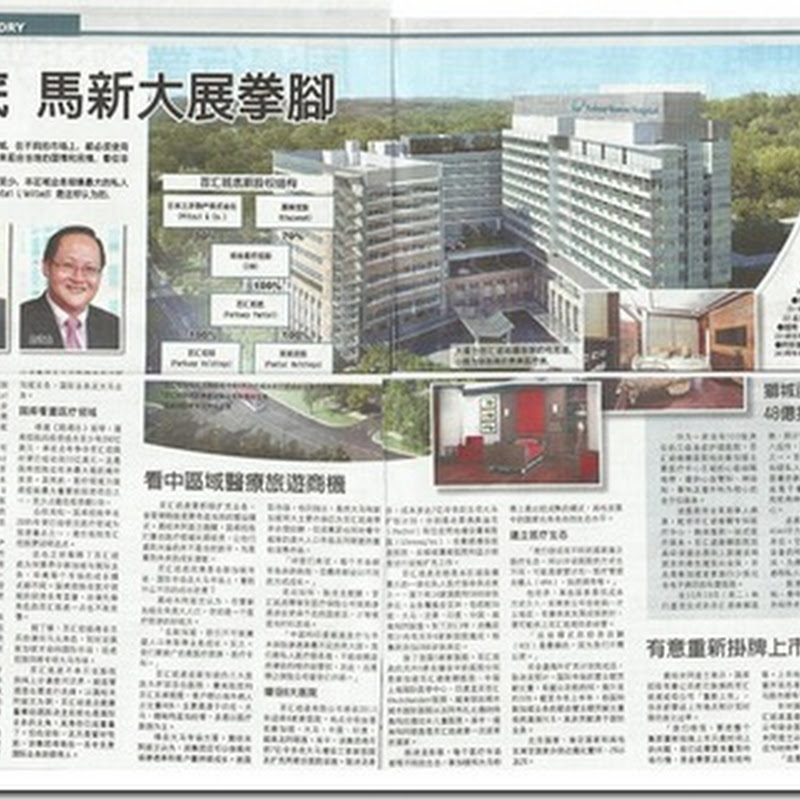The proposed RM110 million bond issuance to IJM Corp will have to be approved by the shareholders of Scomi Group first before it can be issued to the construction group.
The proposed bond issuance is part of the corporate restructuring exercise undertaken by Scomi Group, which will see IJM Corp emerging as the single largest shareholder in Scomi, with 25 per cent stake.
IJM Corp currently has nine per cent of Scomi's outstanding shares after it subscribed to a private placement for RM33 million.
IJM Corp, one of the country's biggest construction companies has a 9.06 per cent stake in Scomi. The company wants to increase its stake in the company via a RM110 million renewable convertible bonds issue.
The script issue has the blessing of the Securities Commission but will need a majority vote by the Scomi shareholders before it can be realised.
The exercise, if approved, will make IJM the single largest shareholder in Scomi but IJM being an interested party in the deal cannot vote in the extraordinary general meeting.
Meanwhile Scomi Group Bhd chief executive officer Shah Hakim @ Shahzanim Zain is said to have consolidated his position in the company ahead of a decisive special shareholders' meeting that could decide the direction of the company.
It is learnt that the emergence of Singapore-based TAEL One Partners Ltd as a 9.87 per cent shareholder in the company in Dec 2012 is seen as a move by Shah Hakim to beef up his position in the company. He is attempting to fend off a possible takeover by Tan Sri Abu Sahid Mohamed and parties aligned to him.
TAEI’s 9.87% stake in Scomi group is a result of the conversion of loan stocks it has held for some time now (Jan 2013) … could form the bulk of the firepower chief executive Shah Hakim needs to push ahead with his debt restructuring plan for the group and pave the way for IJM Corp to raise its holding to roughly 25% from 7.75% now (Jan 2013).
TAEI also holds 8.39% stake in Scomi Marine is supportive of the entry of IJM Corp. Scomi Marine is a 42% subsidiary of Scomi Group.
Abu Sahid’s stake in Scomi Group has shrank to 6.78% stake following the conversion of the ICULS.
Abu Sahid, who is the chairman of Perwaja Holdings Bhd and Kinsteel Bhd, controls slightly more than eight per cent of the company. He is said to have the backing of Shah Hakim's long-time partner Datuk Kamaluddin Abdullah in Scomi.
Shah Hakim seems to be firming up his grip in the company while his potential rivals, which were initially seen as having the upper hand, have softend their hold on the company.
Abu Sahid's long-time ally Datuk Siew Mun Chuang, who is also a major shareholder in Kinsteel, announced a day before Christmas that he was no longer a substantial shareholder of the company.
Siew's stake was diluted as some of the Scomi board members had increased their stake in the company by converting their Irredeemable Convertible Secured Loan Stocks into mother shares. Among those who had done so are Tan Sri Mohamed Azman Yahya and Tan Sri Asmat Kamaludin.
Shah Hakim had also bought some 39 million of Scomi warrants in November 2012, which had expired on December 17 2012. He currently (Jan 2013) has a direct and indirect stake of about 13 per cent in Scomi, and is seen as a major supporter for the entry of IJM Corp Bhd into the company.
There is also uncertainty about a 11.21% stake held jointly by private entities controlled by Shah Hakim and Kamaluddin Abdullah. Kamaluddin has taken steps to separate the shareholding.
Interestingly, Abu Sahid’s shareholding was diluted even before a proposed bond issue due to the conversion of loan stocks.
Parties aligned with Abu Sahid control just 12% of the group through various entitles and the businessmen that has not ruled out the possibility of his raising his holding in the coming weeks. He said he is a passive investor and see value in the company and certainly do not want to see his interest diluted easily.
But financial executives say Abu Sahid has faced problems in getting the necessary funding to wage a full blown corporate war. Based in the diluted share capital of 1.536 billion, Abu Sahid will have to fork out rm5.68 million for every additional 1% shareholding in Scomi group.
TAEI’s entry has tipped the scale in favor of IJM Corp and Shah Hakim. The private equity concern and several other parties friendly to Shah Hakim have indicated that they will back the plan to give IJM Corp the majority stake.
IJM’s entry into Scomi Group is part of a two pronged corporate plan to restructure of the group’s huge debt burden.
The fresh capital (rm110 million worth of debt paper which can be converted to shares at a conversion price of rm0.365 and raise IJM Corp’s shareholding to 25%) is crucial to Scomi Group.
Scomi Group’s debts amounted to rm1.12 billion as at Sept 30, 2012 of which rm705 million is made up of a short term liabilities. Its cash balance stood at rm234 million.
Scomi group needs to recapitalize before it can take on bigger jobs. The rm110 million may just resolve a portion of the debts.













































